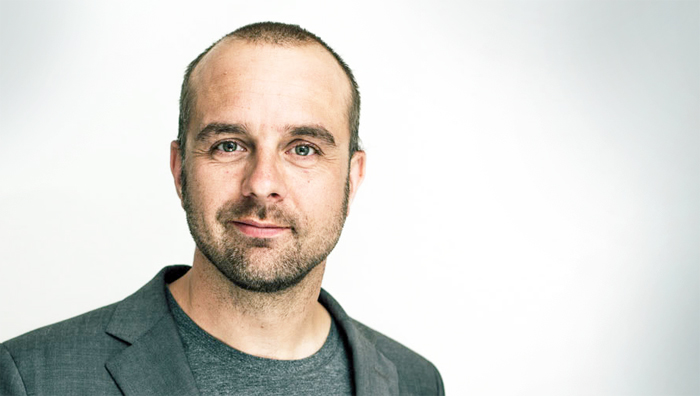The speaking profession seems to be a popular industry to get into for people who like to have an independent career that includes public appearances, traveling nationally and internationally and a positive impact on the lives of others. But the main challenge seems to remain for many aspiring speakers how to achieve and maintain a stable and constant stream of income!
The level of income of motivational speaker differs greatly depending on
- Experience
- Reputation
- Popularity
- Marketing and sales strategies
Due to Work.Chron income of speaker differs as followed
- Starting Earnings: $10,860
- Junior Earnings: $27,040
- Experienced Earnings: $57,200
- Senior Earnings: $170,100
- Top-End Earnings: $312,000
You definitely want to make it at least to an experienced speaker with an income of $57,000 and more. Starters and juniors usually have a hard time in the industry as I experienced myself.
I started as a motivational speaker in Germany in 2012 and extended my motivational business to the US when moving to Colorado in 2014. The beginning of my career involved
- Developing and improving keynote topics
- Practicing my speeches (in my living room over and over again)
- Learning to understand the market
This work kept me pretty busy for the first two years. But it didn’t resolve the financial challenges I was facing. Having developed an encouraging set of keynotes, a decent practice and a market overview still didn’t bring me any close to the earnings of an experienced speaker.
Five-Steps Business Plan
For the following two years, I started a five-steps business plan to receive decent incomes streams for my motivational gigs.
Step 1: Becoming a certified coach
Step 2: Book sales
Step 3: Workshops and training
Step 4: Getting involved with agents
Step 5: Reaching out to corporate training companies
Step 1: Becoming a Certified Coach
I decided to extend my knowledge on personal and professional development to one-on-one coaching to private and corporate clients. It’s recommend to get certified with associations like the ICF, the International Coaching Federation, to stand out in a diverse coaching market with many coaches of different qualities, backgrounds and qualifications.
I took me more than two years to get certified on a part-time basis, but it also helped me improve my motivational qualities on stages. I learned strategies on how to support clients to embrace personal and professional change, motivate individuals, improve resilience and stress management of workforces and get a better understanding on how to enable clients to grow through a thought-provoking communication.
Step 2: Book Sales
Many speakers write books during their motivational career which enables them to
- Grow their reputation
- Sharpen their profile
- Have additional income streams
- Gain speaking clients
I have written several motivational travel books. All of these books cover self-experienced challenges I faced like How to Travel the World for Free.
These books can be purchased by clients after each motivational gig. Usually I provide two options to my corporate clients. First, a price for my keynote or seminar. Second, a price for the gig + a free book for each meeting participant. Usually 70% of the corporate clients go for the package of keynote + books. It just completes the appearance and look favorable for the client to be able to supply its employees with a memorable present after the event.
Additional sales on Amazon and other platform raise my annual income.
Step 3: Workshops and Training
A motivational speaker often offers both, the highly desired one-hour keynote and often full-day employee workshops. Ironically, I usually get paid for the one-hour keynote more than for a full-day seminar. But it does help with stabilizing the annual income a lot. Currently, my income splits up as followed
- 30% Speaking engagements
- 25% Seminars and webinars
- 15% Book sales
- 30% One on one coaching
I advise to offer speaking clients a seminar as a follow-up after a keynote to get deeper into the subject matter. From there it’s usually natural to offer one-on-one coaching to several employees who still have learning needs after the given workshop.
Step 4: Speaking Bureaus
Agents and bureaus used to be the non plus ultra in the speaking industry until we entered the digital age. These days they still play a big role in the industry but the opportunities of digital marketing enable speakers to build their marketing on several pillars.
I am with an agency in Europe for my speaking gigs in Germany and Switzerland and with another bureau in the US. But joining a bureau and getting gigs are not necessarily connected. It usually requires additional blogs, marketing material, good communication and a decent reputation to be successful with an agent. I advice to carefully understand the market of speaking bureaus before applying to these middle men.
Step 5: Corporate Training Companies
These large training corporations seems to dominate the workforce training market in the US. They usually offer anything Corporate America needs in terms of motivation, soft skills to hard skills.
It can be a great fifth pillar of your business if you become an independent facilitator to some of these companies. But watch out for some challenges.
Some companies just go for full-times trainers and speakers. Others seem to pay not more than a mediocre honorarium for a day of speaking. But it’s worth to look at these providers.
My Final Thought
The speaking business is highly exciting and a dream profession for many. But the attractiveness of the business attracts many people, and not all of them really make it big. A diverse income strategy is required to fully enjoy this business. I’m sure you can think of many other income streams to make it really BIG up there!

